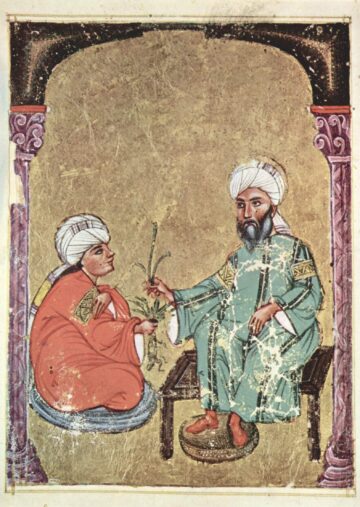Abstract: Qur’an as a source of dialogue amongst different belief systems. Through deft exegesis of various Qur’anic verses, in Sufi tradition, the claim is made that the Qur’an not only supports, but also wholeheartedly encourages the pluralism of faiths in today’s world while vehemently opposing religious nationalism and fanaticism. In an effort to achieve understanding, appreciation and harmony. it is imperative that Muslims bring to light that which unites all peoples in their various belief systems so as to enter into constructive and inspired dialogue with others. The Qur’an enjoins upon Muslim the understanding of other faiths and peoples as a means of attaining spiritual enlightenment: knowing oneself, knowing others and knowing God are inextricably linked.
Introduction
I would like to begin my talk by expressing heartfelt gratitude to Professor James Cutsinger for having invited me to this conference and for all his hard work, meticulous organisation, and gracious hospitality. It is indeed an honour to be present at a gathering such as this and it is a particular privilege to be able to speak in the presence of two scholars I consider to be my teachers, Professor Nasr and Professor Chittick, for whose outstanding contributions to the field of Islamic spirituality I am so grateful.
When Professor Cutsinger invited me to deliver a paper at this conference, I decided after some thought to address myself to the Qur’an as a source of inspiration for interfaith dialogue. I came to this decision not because I am an authority on the Qur’an(also Koran. Arabic term meaning, ‘recitation’ or ‘scripture’): Muslims believe that the Holy Qur’an contains divine revelations to the Prophet Muhammed received in Mecca and Medina over a period of… More; I am at the very beginning of my scholarly engagement with the sacred text. Rather, I decided on this theme because I felt that the metaphysical and spiritual dimensions of the Qur’an, as expounded in the Sufi tradition, have so much to offer those engaged in religious dialogue; those, in particular, who see the different religions as being so many ‘paths to the heart’.
Little did I realize how urgent it would become for all Muslims to bring to light within themselves and for others, the spirituality and universality of the Qur’an. The recent and ongoing tragic events have precipitated a heated debate about the nature of the religion of Islam, and of course, the basic message of its founding scripture. I have, accordingly, modified the first part of my paper in order to focus more sharply on the way in which the Qur’anic discourse, understood spiritually, is an effective antidote to the poison of religious fanaticism and a powerful force for the spirit of inter-religious harmony.
I will touch very briefly in this first part of the paper on certain basic themes of Sufi-gnosis or ma‘rifa, that are rooted in the Qur’anic message, and briefly allude to some of their implications for reaching out to ‘the other’; in the second part of the talk the aim is to show how a spiritual conception of the essence of Islam opens up a path leading to the heart of religion as such. Finally, I will present a series of verses from the Qur’an which uphold this essentialist view of religion and which clearly exclude what Frithjof Schuon has aptly called ‘religious nationalism’ – that is, the idea that only one religion is true to the exclusion of all others.
Author

Dr. Reza Shah-Kazemi
Founding editor of the Islamic World Report, Reza Shah-Kazemi studied International Relations and Politics at Sussex and Exeter Universities before obtaining his PhD in Comparative Religion from the University of Kent in 1994.






